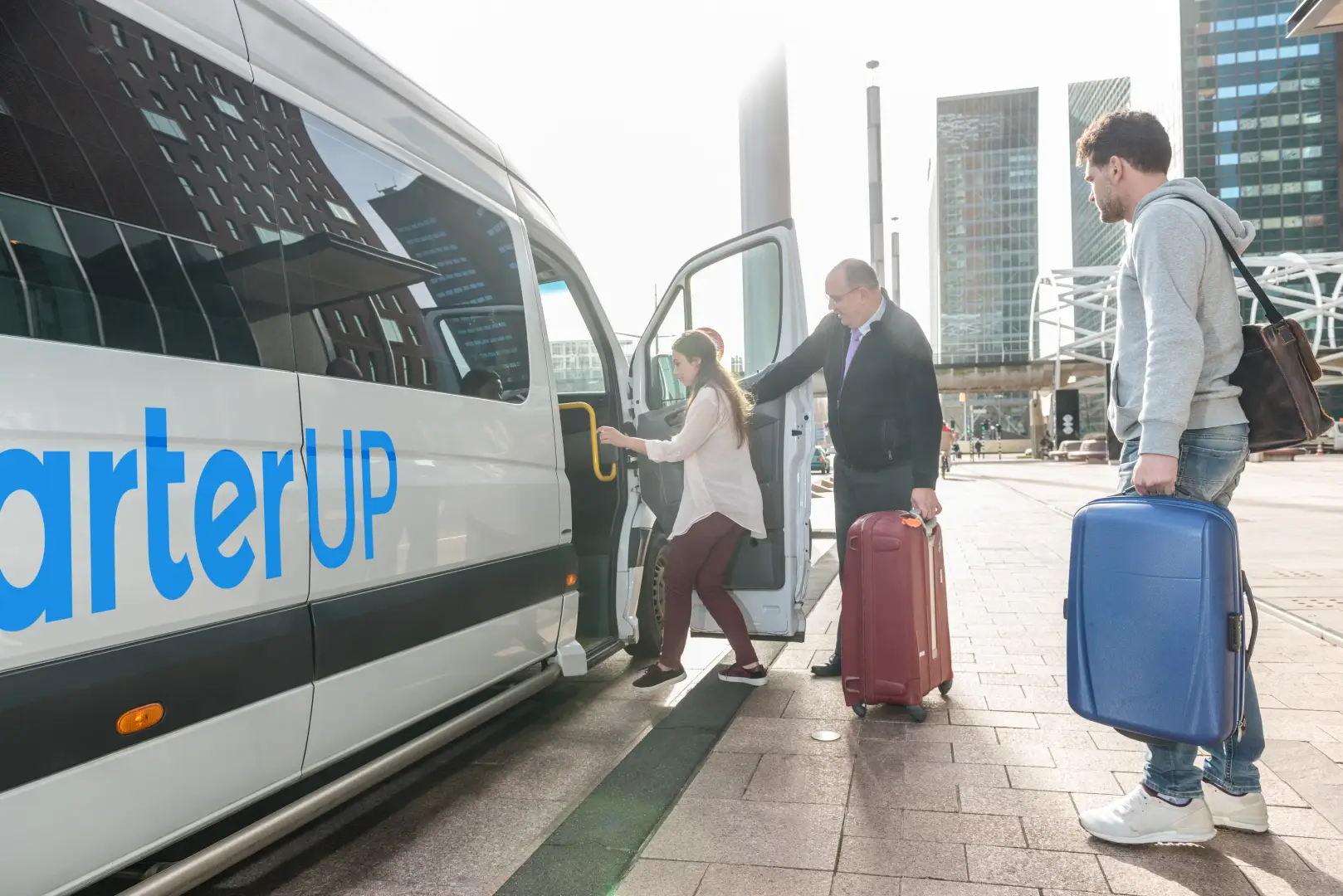Demand for corporate shuttle services at CharterUP has increased by more than 280% in the past year, and the reason is no surprise: More companies are recognizing the benefits of providing employees with a convenient transportation option to commute to the office or travel between sites.
As the leading charter bus service for a growing roster of Fortune 500 companies, CharterUP has heard from customers across industries about how their shuttle programs have improved employee satisfaction, attendance and retention while also helping companies reduce their carbon footprint.
When employees no longer have to worry about finding a parking spot or navigating through heavy traffic, they arrive at work feeling less stressed and more productive. This added convenience can be used to help attract and retain top talent, reducing the amount of time and money a company must spend on recruiting efforts.
By providing transportation to and from work, companies can reduce their carbon footprint by taking cars off the road. This can be a huge boost to a company’s sustainability efforts and can even be used as a selling point to environmentally conscious customers or clients. With increasing awareness and concern surrounding climate change, many companies are incorporating sustainable practices into their operations, and offering a corporate shuttle program serves as tangible proof of a company’s commitment to sustainability.
While most companies realize a return on investment with corporate shuttle programs through improved employee satisfaction, attendance and retention, some companies have discovered another way to help offset the cost of the service: Tax breaks and incentives¹.
Here are a few potential tax benefits that companies should explore:
Federal Tax Incentives
Employers can offer Qualified Transportation Benefits, which are tax-free benefits provided to employees to help with their daily commute. According to the IRS, qualified transportation fringe benefits include company shuttles, public transportation passes and bike-share memberships.
Reduced Payroll Taxes
Offering sustainable transportation options may also reduce payroll taxes. The value of the Qualified Transportation Benefits (up to $300 per month) is not considered taxable income, so it is not subject to payroll taxes.
According to calculations by Edenred, a company that offers corporate benefit solutions, commuter benefits can save companies 7.65% on payroll taxes and an average of $40 per month for each participating employee. A company with 50 employees can save over $24,000 annually by offering a corporate shuttle program.
State Tax Credits
Some states offer tax credits for businesses that implement sustainable transportation programs. For example, Maryland created a Commuter Tax Credit that allows business to claim a tax credit of 50% of the cost of providing qualifying commuter benefits (up to $100 per employee per month). Washington offers a tax credit of up to 50% of the cost of the commuter benefit, up to $60 per employee per year.
Taking advantage of tax benefits can further enhance the cost-effectiveness of a corporate shuttle program and make it even more attractive to businesses.
The key to a successful corporate shuttle program is finding the right balance between convenience, safety and cost-effectiveness. CharterUP, with its nationwide network of buses, experienced drivers, and instant customized pricing services, can provide reliable and efficient transportation solutions for companies of all sizes. From small startups’ shuttle bus rentals in Houston to large corporations’ charter buses in San Jose, CharterUP has the expertise and resources to customize a corporate shuttle program that meets the unique needs of each business.
Connect with the CharterUP team to learn how our nationwide network of charter buses and shuttles can help you get down to business.
¹Consult a qualified tax professional to determine if your company is eligible for tax breaks and how to take advantage. Tax laws and regulations are subject to change at any time and vary by jurisdiction, so it’s essential to get personalized advice that takes into account your company’s unique circumstances.



